News & Blog
We are delighted to launch an evaluation report of our Wishing Well Music in Healthcare programme at The Royal Alexandra Children’s Hospital in Brighton. This report, created by East Midlands based organisation Well Within Reach, offers insights and resources for people working in the field of Culture and Health who are interested in deepening their understanding of how participatory music making can build relationships that benefit everyone on the hospital ward.
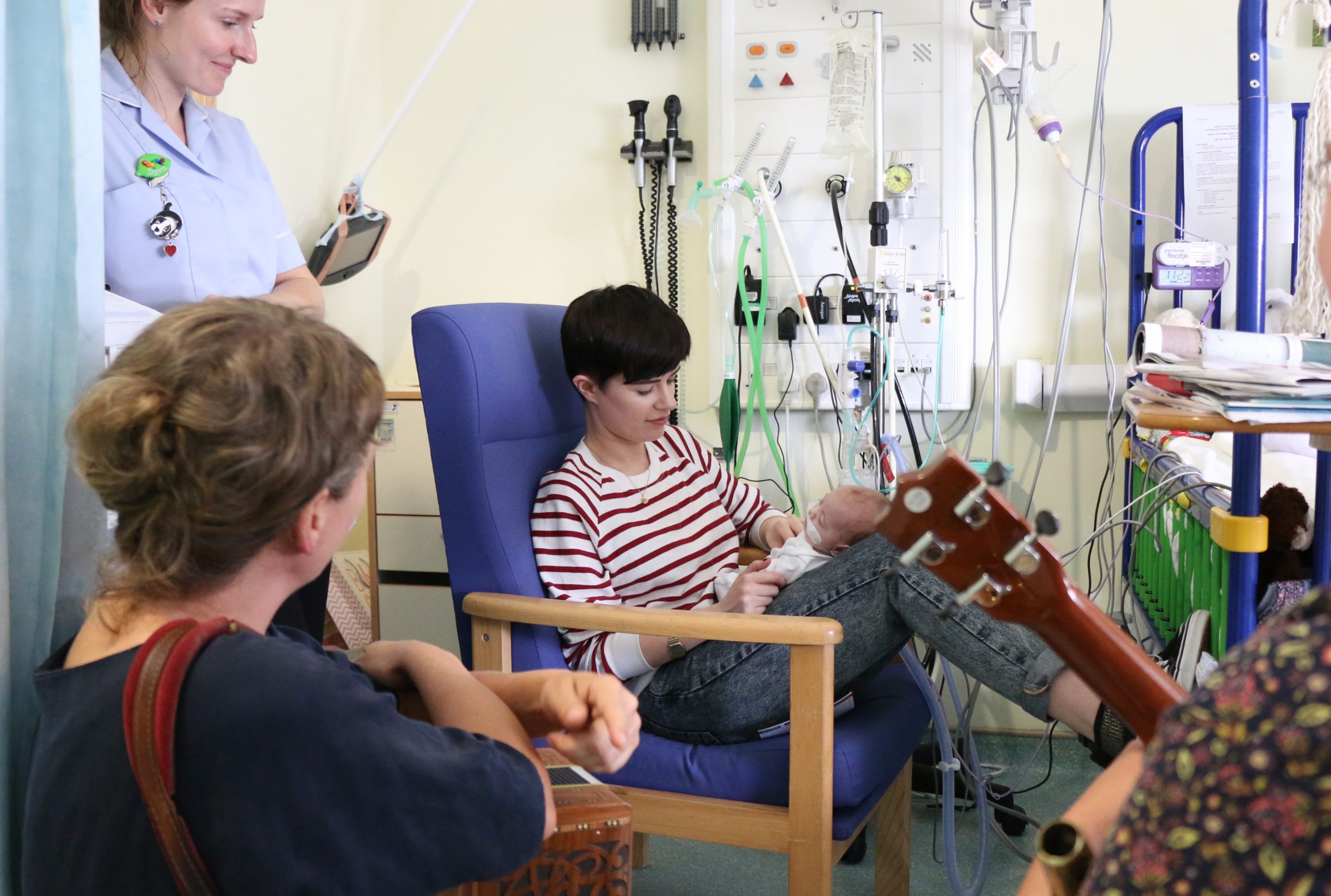
We wanted to work with Well Within Reach to better understand how music can support a child’s developing brain and nervous system during the potentially traumatic experience of being in hospital. The report presents key findings following a year of collaboration, observations and training.
What is in the report?
The report is made up of 2 main sections.
First, a series of case studies of our work at The Alex, seen through a “3 stage relationship” model.This provides a way of understanding the process of beginning, strengthening and ending musical interactions in hospitals where Musicians work in sensitive and often unpredictable situations.
The second section offers a tool kit of evidence, research and methodologies relevant to our work. We hope these resources will be useful to music practitioners, health professionals and funders who want to deepen their understanding of how music making and person centred interactions can create nurturing, expressive, therapeutic environments for children in hospital.
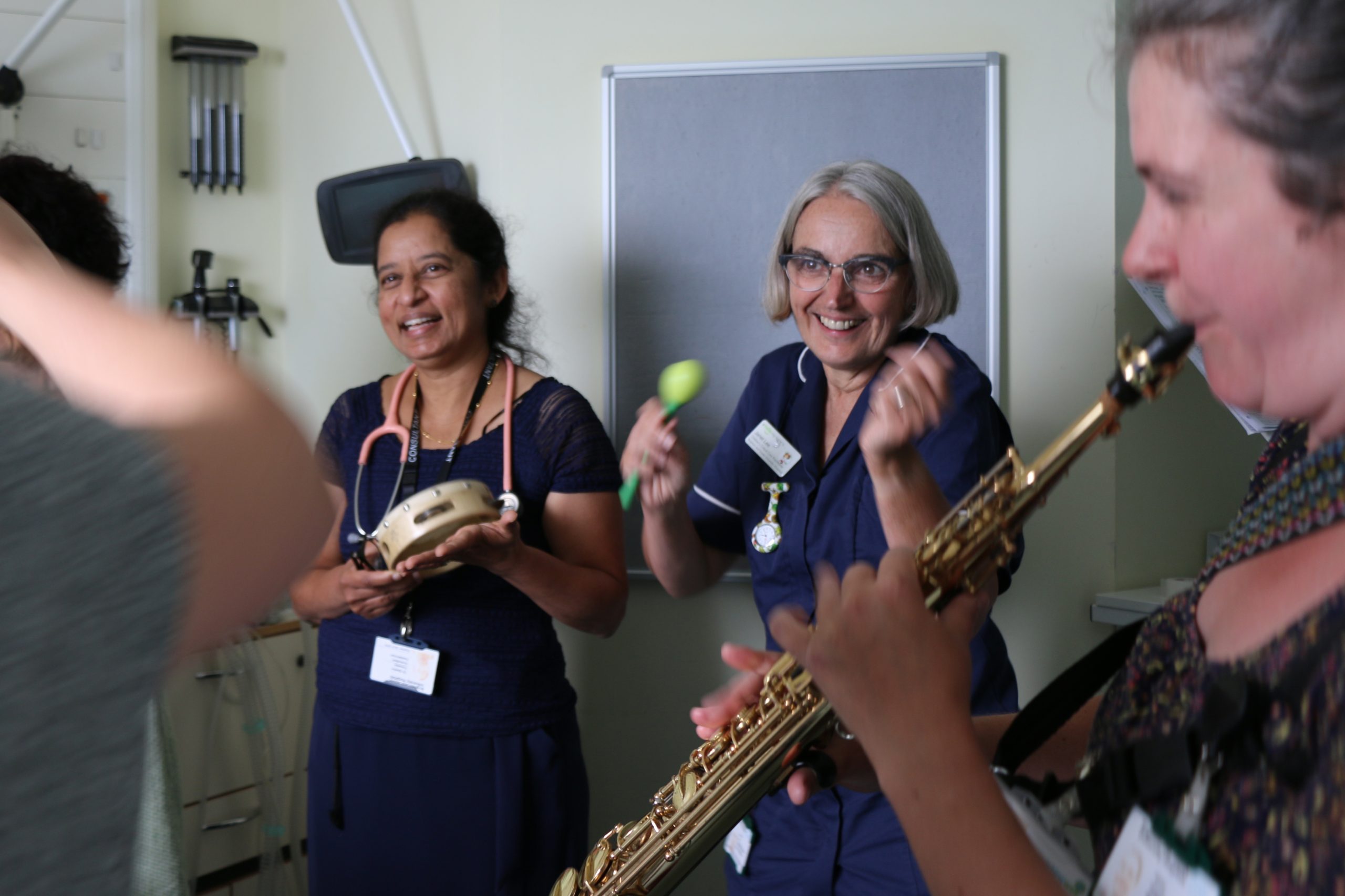
Thank you!
We’d like to say a huge thank you to all the children and young people, families and staff at The Royal Alexandra Children’s Hospital in Brighton for making music with us and supporting our work. Our partnership demonstrates the amazing things that can happen when health and cultural organisations work together.
Thank you to Well Within Reach for taking us on such a fascinating journey of learning, reflection and inspiration.
Thank you to The National Foundation for Youth Music and to BBC Children in Need for funding the Wishing Well programme and this evaluation.
Projects like Wishing Well at the Alex are only made possible by our generous supporters.
Last night was an amazing night for Wishing Well – we were a finalist at the HSJ awards!!! It was wonderful to receive this recognition of the amazing partnership that we’ve developed with The Royal Alexandra Children’s Hospital over the past 6 years.
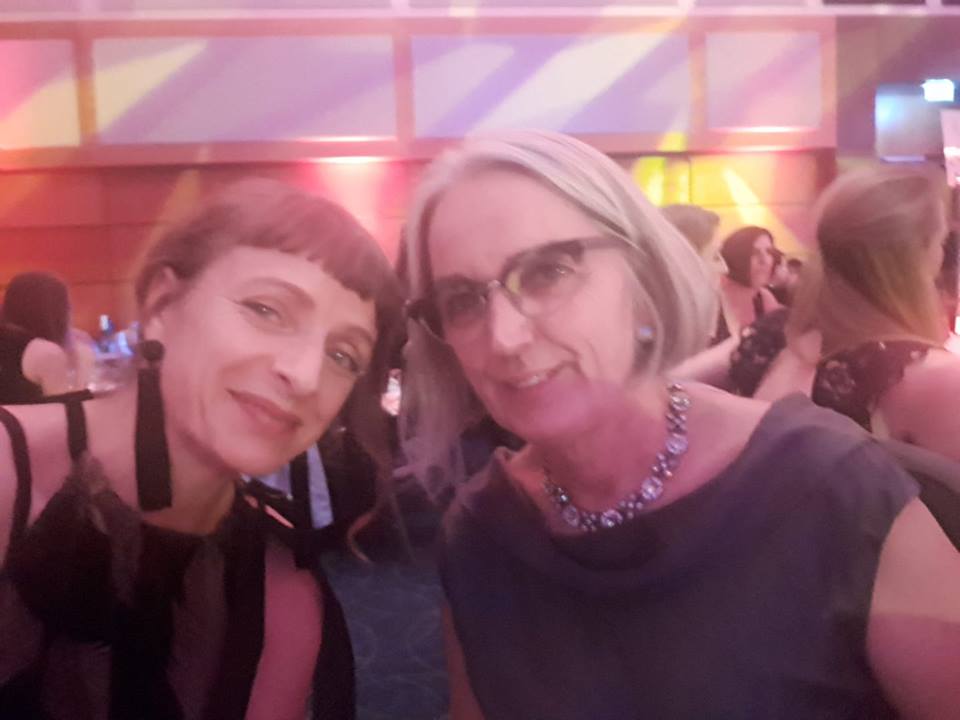

Being a finalist in this prestigious awards, and having our work recognised on a national level is a huge honor. We would like to congratulate all of last nights finalists and winners!
We are delighted to have our work featured in Brighton and Hove County Council’s ‘The Art of Good Health’ report. The report highlights the positive impact that being involved in the arts can have on health and wellbeing from cradle to grave. The report demonstrates that the arts can be delivered in almost any setting, including hospitals.
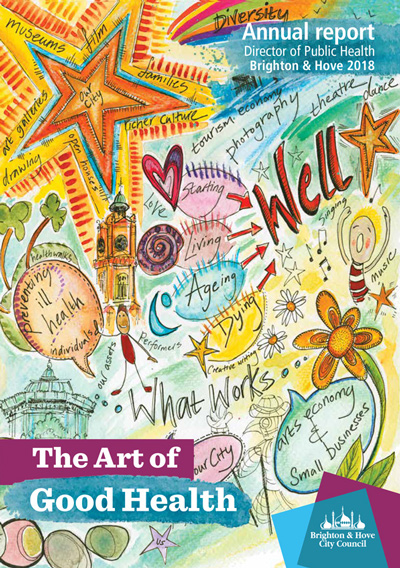
The report features our work at the Royal Alexandra Children’s Hospital. Our trained music leaders go onto the wards three times a week, bringing acoustic instruments and music technology right to children’s bedsides. The interactions provide vital stimulation to help them develop, distracts from uncomfortable procedures, and creates a sense of community between children, families, and hospital staff. You can read our case study in the report here.
We are delighted to announce the release of a short film by the Sussex Community NHS Foundation Trust showing our Wishing Well programmes work with older people living with dementia in Community Hospitals. We use music to build a bridge across the isolation caused by dementia, helping people to connect with the people around them again.
Lead Nurse Lucy Frost told us that, ”It brings the patients and staff and visitors all together, and it helps us also known a little bit about the patient, because to every point in somebody’s life, they often have a song about it.”
Wishing Well brings live music-making interactions right to people’s bedsides and to communal spaces to help relieve the anxiety and isolation that they can experience. Soundtracks we accumulate throughout our lives are vividly retained in the memories of people even in the late stages of dementia. We tap into these soundtracks to reduce some of the anxiety they experience.
”It changed the whole environment of our hospital. The staff are more motivated to try different things with the patients, they have introduced games, and the patients find it fun and when you are reflecting fun, than you get fun back, it creates a really good atmosphere.” Nurse reflects on the effect that music has on the hospital.
Our work is only made possible by our generous supporters please click donate and help us continue to bring music to people!
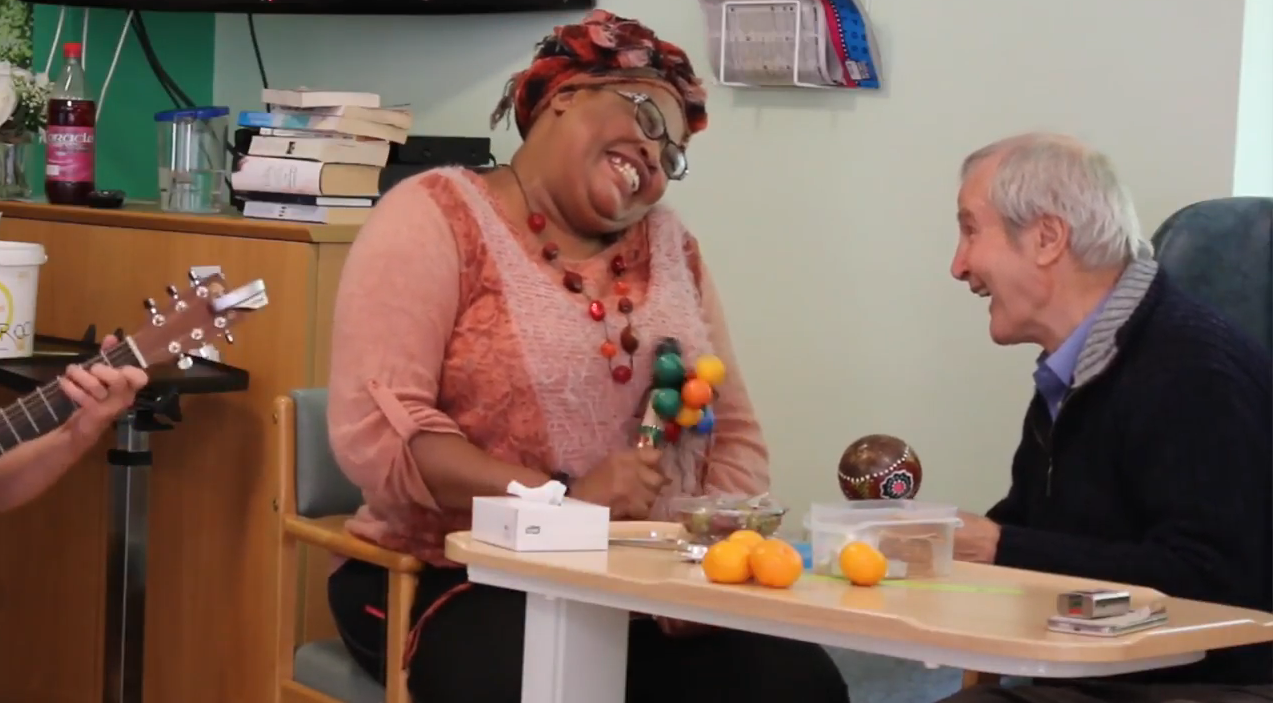
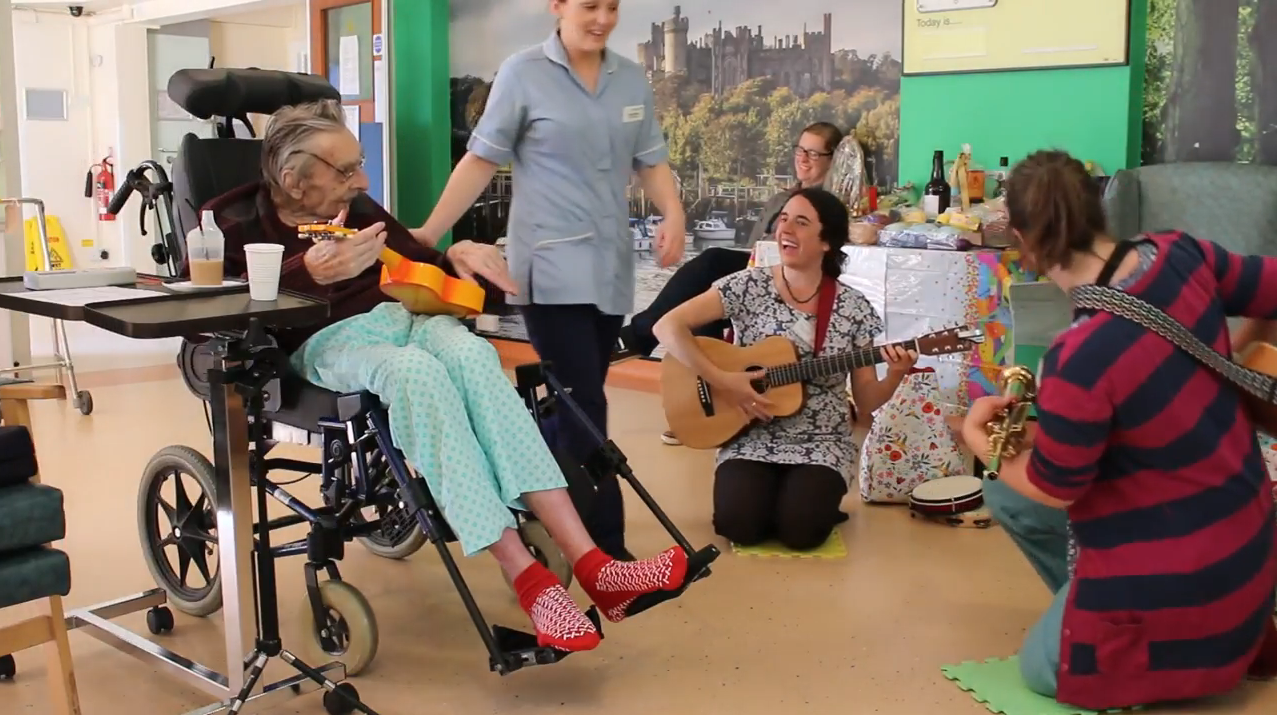
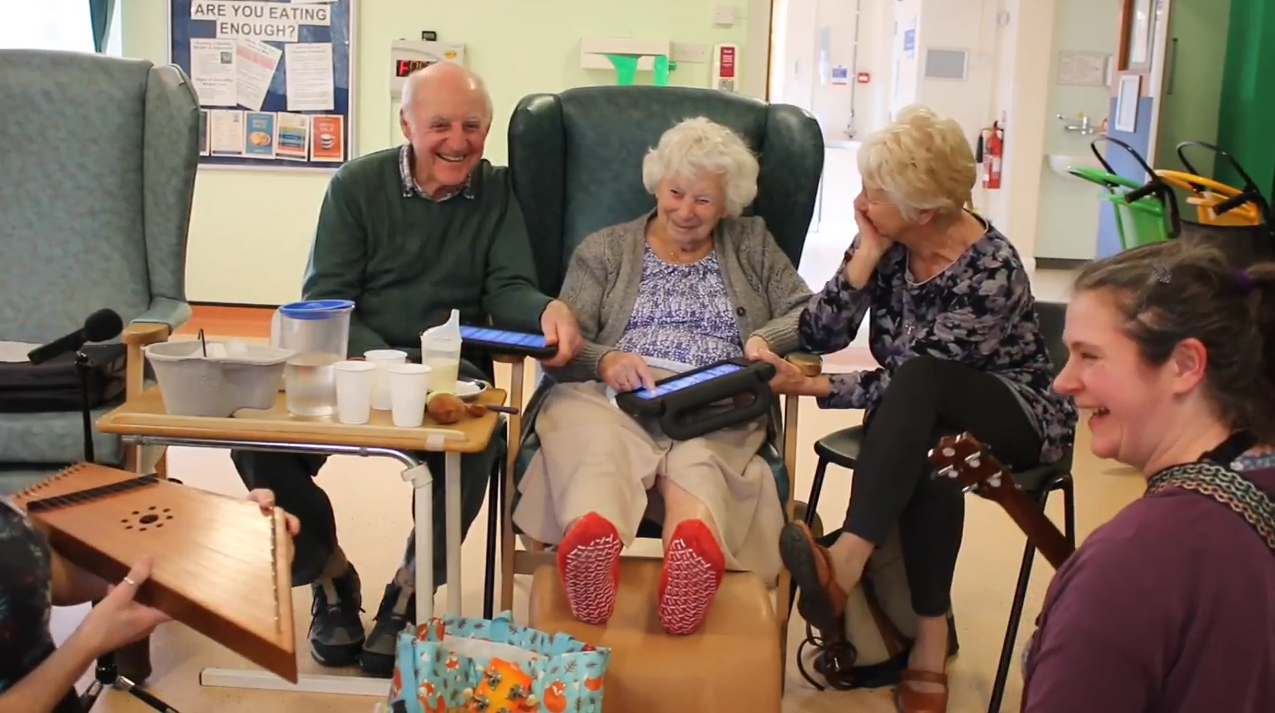
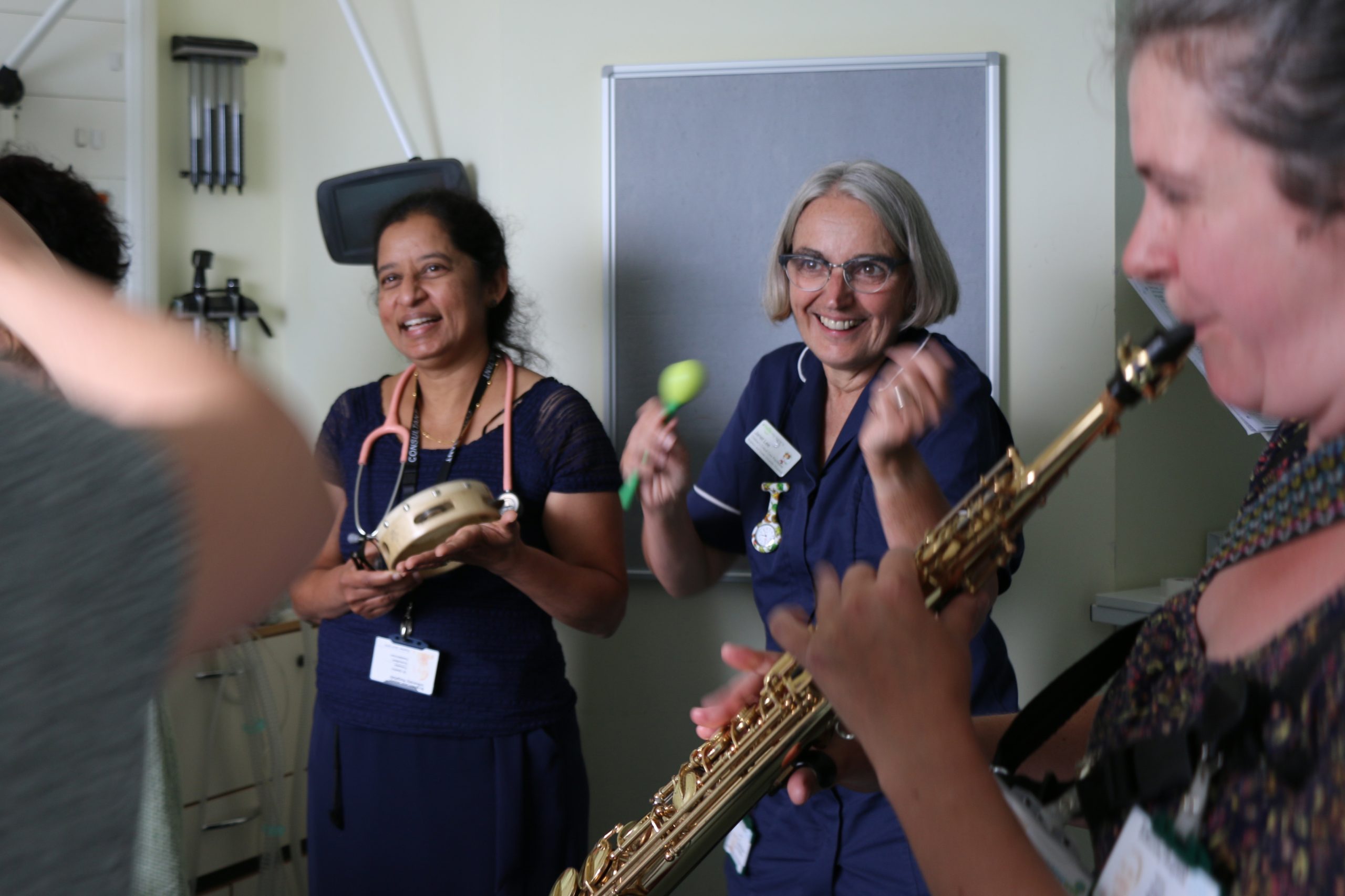
We’re over the moon to announce that our work with The Royal Alexandra Children’s Hospital in Brighton has been shortlisted for a highly prestigious HSJ Award! Through our Wishing Well programme, we’ve been making music with children and families in critical care at The Alex since 2013 and now, “Wishing Well at The Alex” is shortlisted in the “compassionate care” category. Partnership working is at the heart of our project’s success and enables to work with the poorliest children and their families and make a difference to their time in hospital. When we make music together, the hospital ward becomes a place where ideas are flowing, people are expressing themselves and showing what they can do …amid all the loss and trauma of long hospital stays, creating this bubble of safety can make a huge difference.
Reflecting on the news, Children’s Critical Care Practitioner Janet Lee said that,
“It is our job to make sure that we enrich the lives of the children and families that we look after in as many ways as possible whilst they are in our care – music is one of the ways that we can do that”.
For more information on the national HSJ Awards, please visit: https://awards.hsj.co.uk/